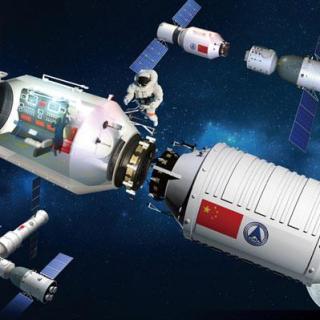
介绍:
LK: Well, let me ask Morris: compared to other nations, what do you think are China’s advantages and disadvantages in developing space programs?
MJ: I think China has one clear advantage over the United States, and, to a certain degree, a lot of other nations, and it’s simply the fact that China knows how to draw up plans, and China then knows how to stick to those plans. China has a very coherent, long-term plan that makes sense, and they’re steadily working through their progress, whereas we have situations in the United States, where it isn’t really clear where America is going in the long run with spaceflight. They’re struggling to define plans; their plans seem to change on a regular basis, and so you really don’t know where America is headed. China has a good strategy, and it’s that long-term strategy that leads to success.
LK: Well, Kerri, do you agree? Do you think the American way of doing this is more to go with the flow and change it as they experiment?
KC: Well, I think you can say that with some certainty for the public sector projects. It’s harder to say with any clarity for the defense sector, and I agree that the political system is organized such that administration changes affect the overall goals and strategy, and that it would be good to have long-term plans that are consistent, because you really do sometimes need these tens of years of development, for projects like the James Webb space telescope, which is a very large-aperture telescope with segments that are deployed, and it’s very complicated; also for infrastructure such as manned spaceflight and very large launch vehicles. To some extent we’ve been trying to address this by pushing into the commercial sector, where right now there is certainly not the level of investment that you can get from a government program, but there might be more long-term consistency and direction, and so those things are not at a point yet where I think they’re very stable, but it is a possible future path that would have a little bit more consistency than we currently see with the administration changes.
LK: Well, Yuguang, as Morris has pointed out, China usually has a five-year plan for economic development, and space programs certainly are included in that kind of plan. Do we always stick to that kind of plan? Do we always reach or achieve what we plan to do?
YYG: Yes, China has a very continuous plan for its space program compared with the United States. Although the US has the most advanced technologies and has very outstanding crews, they always have some shortcomings in their long-term strategy. You see, they performed the Apollo program, but suddenly they stopped that program, and you see that almost half a century later, human beings have never visited the moon again. For the space shuttle program, first they wanted to improve the cost, and also to achieve high reliability, but the fact proved that the space shuttle is not economic and not safe. So, the United States made many mistakes, and today they even depend on the Soyuz spaceship of Russia to access the International Space Station. That’s a problem. China develops space technology depending on its own requirements, not competing with any other country. So, it has a very concrete plan to achieve its projects.
大家还在听

